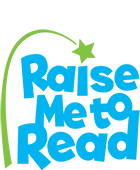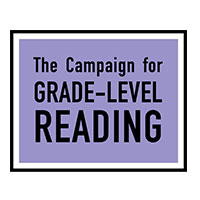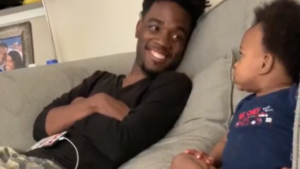“We live and breathe words,” author Cassandra Clare writes in her young adult book The Clockwork Prince. We live and breathe words — this is more completely true than the reader might imagine, for it is through communication with others that a child’s brain develops to its fullest potential. The words they hear, and the back-and-forth “conversations” in which they engage from birth onward affect how completely their brains will develop.

S. Hermann and F. Richter from Pixabay
Every moment of the first three years of life is crucial for brain development. During this time, a child’s brain will make the most meaningful and critical connections it needs in order to be fully able to learn, wait, control emotions, and understand the surrounding world. Thinking in “rocket” terms, these three years are the launch window through which a person’s trajectory will be set. Yet, there are no engineers or mathematicians required for this launch; the “science” is talking to and with children.

It seems so simple, doesn’t it? Babble with your baby, read to your baby and toddler, allow children to hear calm adult banter (creating for them a continuously enriched bank of words which they have heard), and engage in back-and-forth conversation with your child. For many complicated reasons (from work-life imbalance, to traumatic or adverse events and situations, to the break-down of the family) all too many children have missed these critical stages of development. The unfortunate result is that when these children arrive at school, they are not ready to learn. An early study noted that children who have not experienced this kind of interaction can have as much as a “30 Million Word Deficit”. Significantly, being unready to learn and behind one’s peers in such a way makes the life-path for students sadly predictable even in the first years of schooling.
Research makes it clear that in the early years all of the elemental pieces essential for later success must come from parents and other caring adults. Absent those pieces, and/or with the addition of adverse experiences or traumatic events, children are at an distinct disadvantage.
At Metro-Omaha Raise Me to read, we wish to spread the word that parents and other caring adults are the first curators of learning, and that engaging with children from infancy onward using words, songs and playful interactions makes all the difference for a child’s future.. The Campaign for Grade Level Reading refers to parents as the “Secret Sauce”. “Parents play the most powerful and influential role in their children’s lives. As their children’s first teacher, brain builder, tech navigator, advocate and coach, parents set the stage for success in the early years and early grades.” Parents have a “central role in closing gaps in children’s healthy development and readiness for school. . .”.
Wondering what parent-child interaction should “look-like”? — A darling example of a parent talking with his son is found in several viral posts with comedian DJ Pryor and his son Kingston in a video gone viral. Mr. Pryor is responding as if his son is leading the conversation, and he models making hand-gestures, gaining eye contact, and drawing attention toward other objects in a responsive (“serve and return”) manner. Multiple daily issues may seem more important than family conversations such as DJ Pryor posted; however, if parents set as their priority, talking with babies and children, then everything changes. https://www.youtube.com/watch?v=AY35eXTKVLY&feature=youtu.be
Atul Gawande (surgeon, author & public health advocate) says, “We are a link in a chain, making a contribution that goes well beyond our own life.” It is important that members of the community understand that hearing new words and having conversations is natural to all circumstances and that they/WE are the links which strengthen children and enhance their opportunities for success. This may occur anywhere – grocery stores (talk with babies as you walk, ask toddlers about shapes and colors, shoppers should engage with children when they see them); churches/synagogues/mosques (new words and concepts, importance of conversation mentioned from the pulpit, engagement between congregation members and children; reading to children); municipalities (noticing and talking to and with little ones, mentioning the importance of birth-to-three parenting in formal and informal meetings, supporting children and family at community activities); barber shops and salons (places where folks are at ease and feeling good about themselves are the best situations for conversations and encouragement); social encounters (babble with babies and talk to toddlers, compliment and support parents); schools (reach out to families and create a home to school bond so parents and families are comfortable; “Parenting University” type courses; community engagement).
We are all a link in this chain, and together – when we live and breathe words with our own children and those in our community – we will change their trajectory, helping them be ready not only for school, but for a positive rest-of-their-life. 


